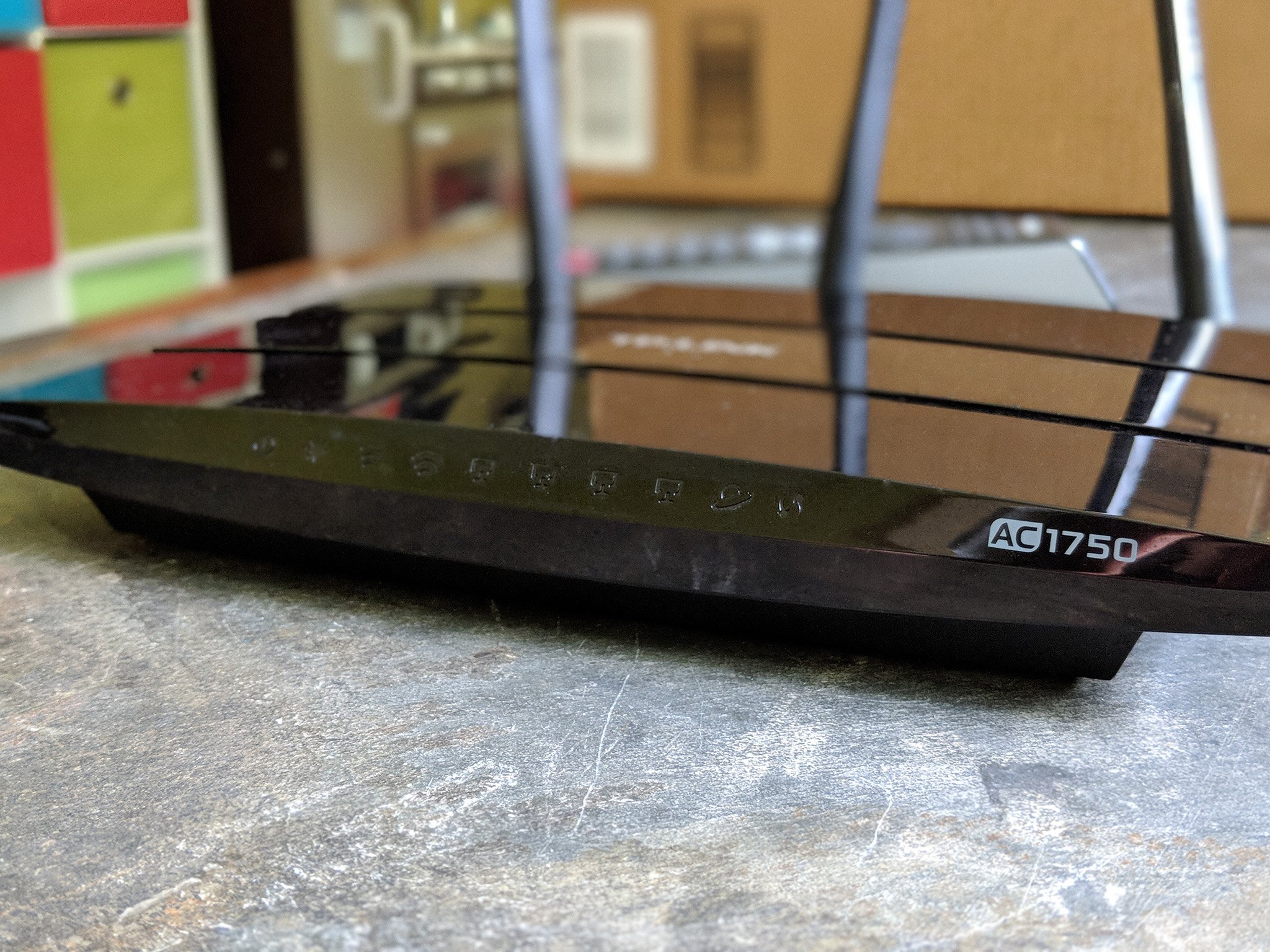TP-Link Archer C7 AC1750 vs. NETGEAR R6700 Nighthawk router: Which should I buy?

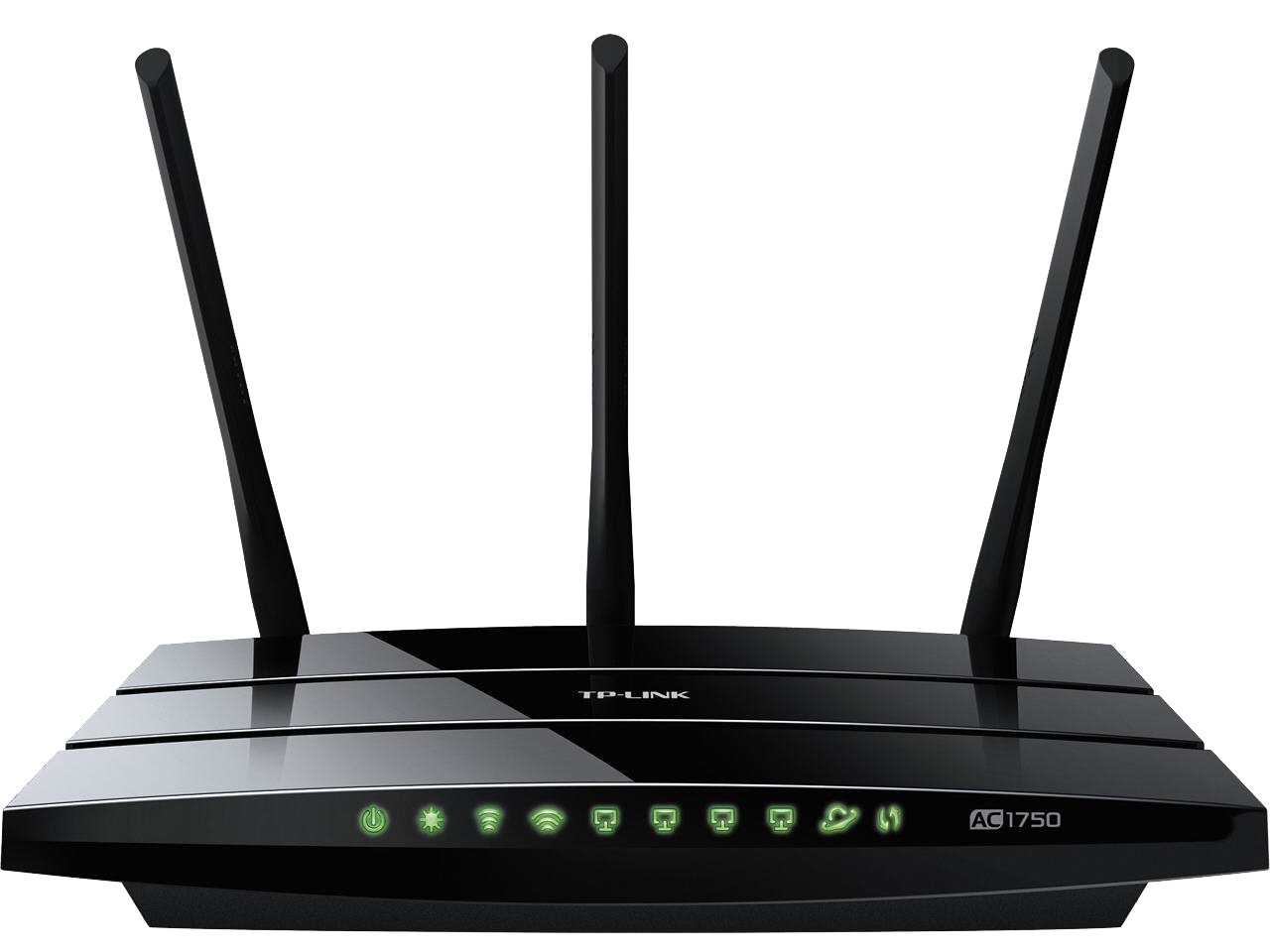
Great value
The Archer C7 is one of the best routers you can buy at this price. It's fast, it covers a large area, and it's suitable for a wide variety of uses. It just doesn't have quite as many features as the Nighthawk.
Pros
- Two USB ports
- Six total antennas
- Parental controls and guest networks
- Easy setup and management
- Two-year warranty, 24/7 support
Cons
- Still using USB-A 2.0
- Not as many features as the Nighthawk
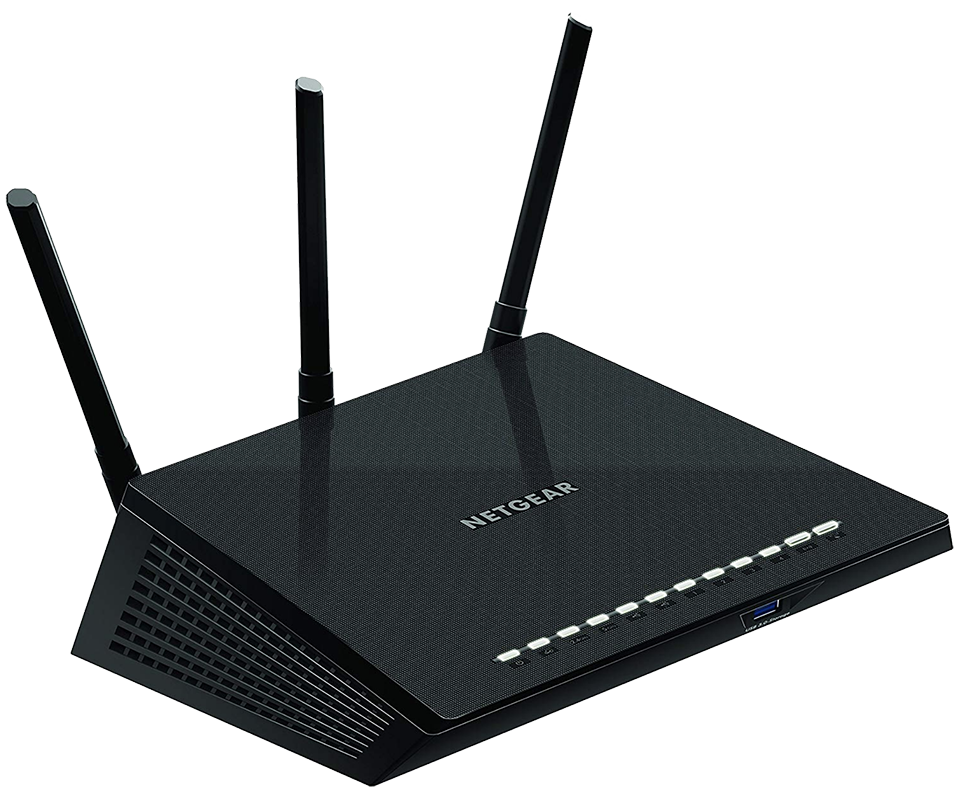
Extra features
It has the same throughput as the Archer C7, but it comes with a few extra features some customers will appreciate — as long as they don't mind paying more.
Pros
- Up and down QoS for gaming and streaming
- Supports beamforming
- Dual-core processor
- Parental controls and guest networks
- VPN support
Cons
- Costs more than the Archer C7
Both of these routers provide the same theoretical AC1750 throughput and both are suitable for a standard home and its devices. However, there are some notable differences that will likely help you make a final decision.
TP-Link Archer C7 vs. NETGEAR R6700 Nighthawk tech specs
| Header Cell - Column 0 | TP-Link Archer C7 | NETGEAR R6700 Nighthawk |
|---|---|---|
| Performance | AC1750 (450 Mbps + 1,300 Mbps) | AC1750 (450 Mbps + 1,300 Mbps) |
| Frequency | 2.4 GHz, 5 GHz | 2.4 GHz, 5 GHz |
| Wireless standards | 802.11ac/n/a (5 GHz) 802.11b/g/n (2.4 GHz) | 802.11ac/n/a (5 GHz) 802.11b/g/n (2.4 GHz) |
| Processor | 720 MHz Single-core | 1 GHz Dual-core |
| Memory | 16 MB Flash 128 MB RAM | 128 MB Flash 256 MB RAM |
| Ports | Two USB-A 2.0 | One USB-A 3.0 |
| Ethernet | Four LAN One WAN | Four LAN One WAN |
| Antennas | Three internal Three external | Three external |
Performance
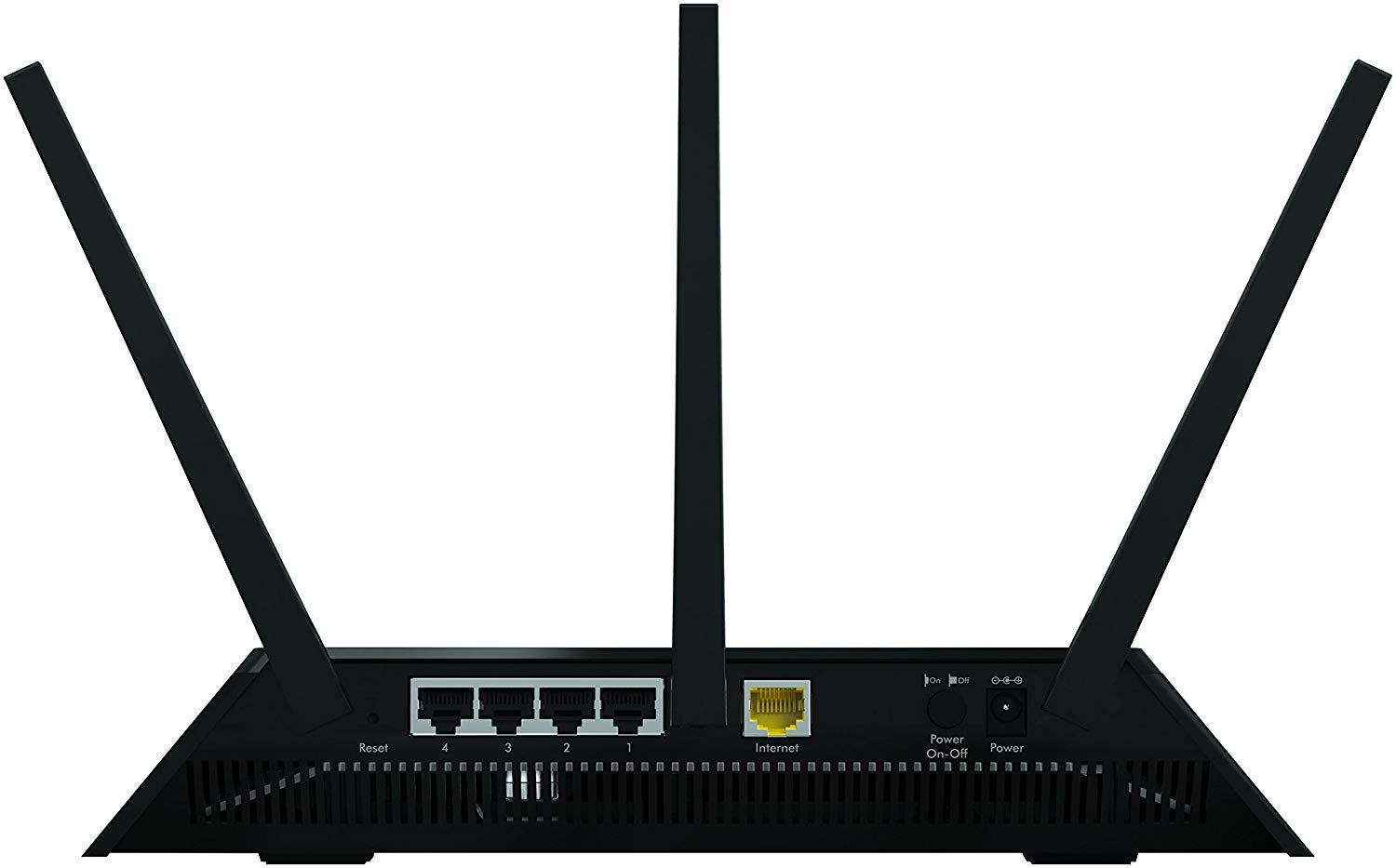
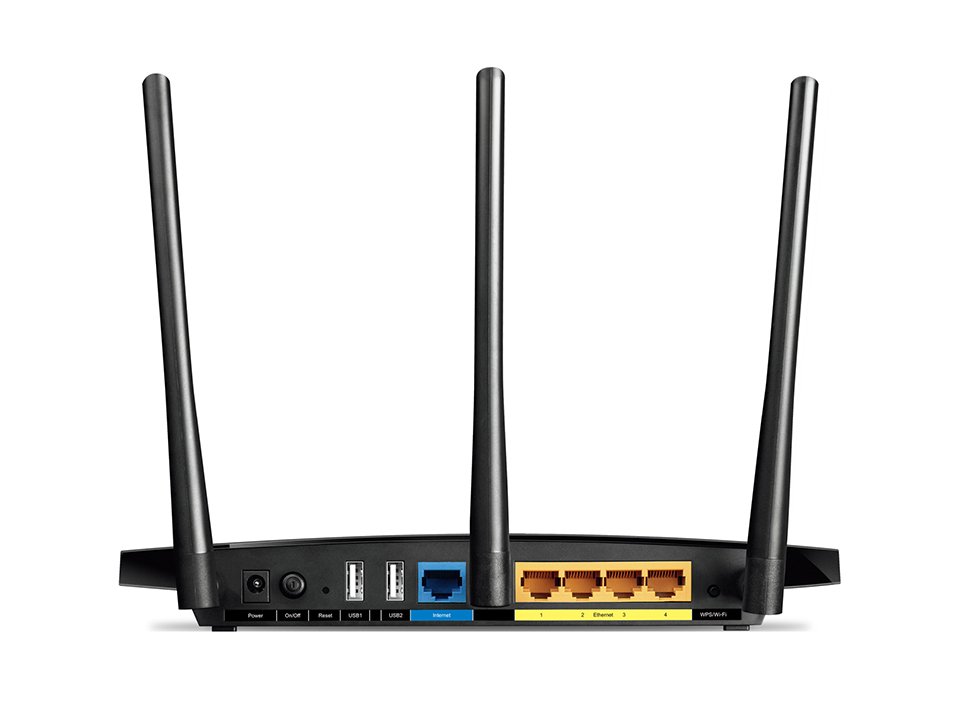
When it comes down to raw performance based on the hardware inside, the R6700 Nighthawk is going to beat out the Archer C7. The former has a dual-core 1 GHz processor (CPU) and 128 MB Flash memory coupled with 256 MB RAM — compared to the Archer's single-core 720 MHz CPU, 16 MB Flash memory, and 128 MB of RAM — allowing for some extra up and down QoS features that prioritize gaming and video streaming.
As far as throughput goes, both can hit theoretical combined speeds of 1,750 Mbps over the 2.4 and 5.0 GHz radios, making them equally fast on paper. The Archer C7 might have six total antennas (three inside and three outside) for impressive range, but the Nighthawk has beamforming capabilities that help get a solid Wi-Fi signal to the far reaches of your home.
The effective range of both of these routers will vary based on the layout of the space you're attempting to cover with Wi-Fi, but both should generally be suitable for medium to large houses. If you have more than, say, five or six people vying for bandwidth, you'll probably want something with more throughput, but for a few people and their devices, either router will perform well.
If you're thinking of connecting an external hard drive to your router for media streaming, the Nighthawk uses a single USB-A 3.0 port for connectivity, while the Archer C7 uses two USB-A 2.0 ports. Here it's really up to whether you want a faster transfer rate or an extra port for a second drive. For wired devices, both routers have four LAN and one WAN Gigabit Ethernet ports.
Features
These two routers share a few common popular features, like parental controls, guest networks, and the ability to use custom firmware like OpenWRT (in the case of the Archer C7) and DD-WRT (in the case of the Nighthawk). Both routers are relatively simple to set up, and both likewise have associated apps for easy management.
NETGEAR's router has some features that will no doubt make it more attractive to those in need of extras, like compatibility with Google Assistant and Apple's Time Machine system, automatic backup software for Windows PCs, and VPN support if you'd like to access your network securely. Up and down Quality of Service (QoS) prioritization is found in both routers, though you'll likely have a better experience with the Nighthawk thanks to the superior hardware inside.
All the latest news, reviews, and guides for Windows and Xbox diehards.
All of these extra features look great on paper, but whether or not you'll actually use them is a different story. If you just need a secure router that can handle a wide variety of everyday tasks, the Archer C7 is still a viable option, and it costs about $15 less.
Finally, warranty and support should be taken into account. Any router can break down, so having some backup is always a good thing. The Archer C7 comes with a two-year warranty and 24/7 support should anything go wrong, while the Nighthawk comes with a one-year warranty and only 90 days of support.
The Archer C7 is the "set it and forget it" option
With identical theoretical AC1750 throughout and great range, either of these routers can handle a standard household's Wi-Fi traffic. If you just want something that you can set up and forget and don't need a bunch of extra features, the TP-Link Archer C7 costs less and should prove up to the task.
If you want more features, go for the Nighthawk R6700
If, however, you'd like a bit of extra performance when it comes to QoS prioritization for gaming and video streaming, plus VPN support, beamforming, and a faster USB-A 3.0 port for external storage, the NETGEAR Nighthawk R6700 is a worthwhile investment for about $15 more.

Cale Hunt brings to Windows Central more than nine years of experience writing about laptops, PCs, accessories, games, and beyond. If it runs Windows or in some way complements the hardware, there’s a good chance he knows about it, has written about it, or is already busy testing it.
